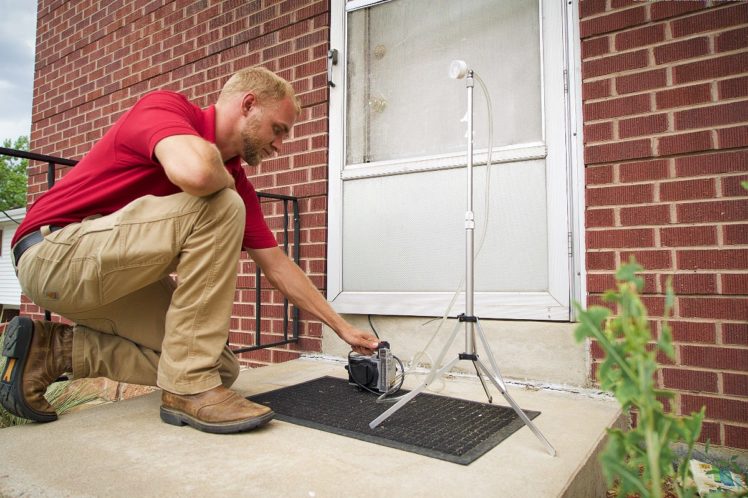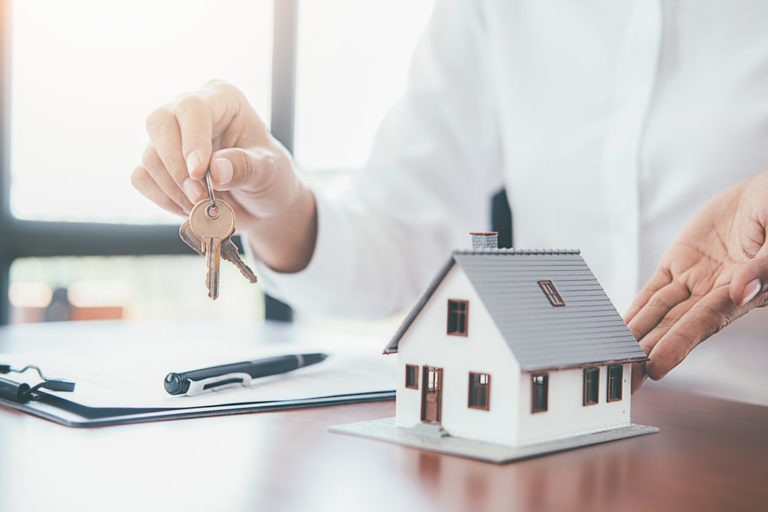Buying a home is a significant milestone in many people’s lives. Whether you’re a first-time homebuyer or an experienced real estate investor, the homebuying process can be both exciting and challenging. To make the journey smoother and ensure you get the best deal, it’s crucial to follow some critical steps. In this blog, we’ll walk you through these steps to help you get through the homebuying process successfully.
Contents
Determine Your Budget and Get Approved for a Mortgage

Source: 10propertiesin10years.com
Before you start shopping for homes, it’s essential to determine how much you can afford. This involves assessing your financial situation, including your income, expenses, and existing debt. You can use online calculators to get an estimate of your maximum home-buying budget, but it’s advisable to consult with a mortgage lender to get a more accurate figure. Remember that your budget should not only cover the purchase price but also include other expenses like property taxes, insurance, and maintenance.
Once you have a budget in mind, the next step is to get pre-approved for a mortgage. This involves submitting your financial documents to a lender, who will evaluate your creditworthiness and determine how much they are willing to lend you. Having a pre-approval letter in hand when you make an offer on a home can give you a competitive edge and show sellers that you are a serious buyer.
Start Your Home Search
With your budget and pre-approval letter in hand, it’s time to start your home search. Consider working with a real estate agent who can help you find properties that match your criteria. Make a list of your must-haves and nice-to-haves, and be prepared to visit multiple homes to get a feel for the market. Remember that patience is key, as finding the right home can take time.
Once you’ve found a home that meets your needs, it’s time to make an offer. Your real estate agent can guide you through this process and help you determine the right offer price. Keep in mind that negotiations may ensue, so be prepared for counter offers from the seller.
After your offer is accepted, you’ll enter the due diligence phase, during which you’ll have the opportunity to inspect the property thoroughly. This is where the earlier discussion about home inspection comes into play. Additionally, you’ll want to review the seller’s disclosures, check for any liens or encumbrances on the property, and ensure that the title is clear.
Schedule a Home Inspection

Source: scotthomeinspection
Before we dive into the broader aspects of homebuying, let’s start with a vital step: home inspection. A home inspection is a comprehensive examination of a property’s condition and is crucial for making an informed decision. While not all states require them, some loan types do need a clean home inspection to proceed with the mortgage. But how much does a home inspection cost?
The average cost of home inspection can vary depending on several factors, including the size and location of the property, the inspector’s experience, and the level of detail required. On average, you can expect to pay anywhere from $300 to $600 for a standard home inspection. However, keep in mind that this is a small investment compared to the potential issues a thorough inspection can uncover.
While it may seem like an additional expense, a home inspection is a wise investment that can save you money and stress in the long run. It can reveal hidden problems that you might not have noticed during your initial visits to the property. These issues can range from structural defects to electrical and plumbing issues.
Additionally, a home inspection report can be used as a bargaining tool during negotiations with the seller. If significant issues are discovered, you can request repairs or ask for a reduction in the purchase price to cover the cost of fixing them. In some cases, a problematic inspection report may even prompt you to reconsider the purchase altogether, potentially saving you from buying a money pit.
Understand Homeowners Insurance
An often overlooked but essential aspect of home buying is homeowner’s insurance. Before you finalize the purchase of your new home, you’ll likely need to secure insurance coverage, as most lenders require it to protect their investment. Insurance not only covers potential damage to the house but can also protect you against liability in case someone gets injured on your property.
Start by getting multiple quotes from different insurance providers to ensure you’re getting the best rate and coverage. Keep in mind that the cost of insurance can vary depending on the location, size, and condition of the property, as well as any additional features like pools or trampolines.
Also, consider additional coverage options such as flood insurance if your home is in a flood-prone area or earthquake insurance if you’re in a region with seismic activity. By understanding your insurance needs and ensuring adequate coverage, you protect your new investment and provide peace of mind for the future.
Close the Deal

Source: superinspectionpros.com
Finally, after all contingencies are met, it’s time to close the deal. This involves signing all the necessary paperwork, transferring funds, and taking possession of the property. Congratulations! You’re now a homeowner. While this is the most exciting part of the process, the path to get there isn’t always smooth. Sometimes the closing can be delayed due to finding liens on the property or issues that arise when you are getting to the closing table. Trust the process, make smart decisions, and you’ll get a great home for this next season of life.
Settle into Your New Home and Neighborhood
Once the dust has settled, and the moving boxes have been unpacked, take the time to truly familiarize yourself with your new home and community. Introduce yourself to neighbors, join local community groups or clubs, and explore the nearby amenities like parks, schools, and shopping centers.
Additionally, consider investing in a few home improvement projects to make the space truly feel like yours. This could be as simple as repainting walls, updating fixtures, or landscaping the garden. These personal touches not only enhance the aesthetic appeal of your home but can also add to its value.
Remember, buying a home isn’t just about the physical structure; it’s also about building connections, making memories, and creating a safe haven for you and your loved ones. Taking the time to integrate into your new community and making your home your own will ensure that this significant investment pays off in more ways than one. If you’re currently in the market for a new home, explore the available options in the area, such as Myrtle Beach South Carolina houses for sale, to find the perfect match for your preferences and needs.
